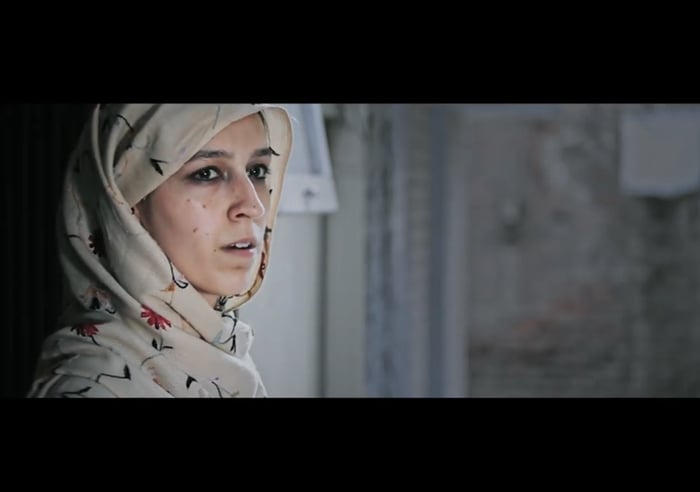Movie review of 'Blue': Controversial or necessary for Pakistani cinema?
Blue aims to expose the culture of victim blaming in Pakistan and in most of South Asia
November 19, 2021

In 2007, when Shoaib Mansoor’s “Khuda Kay Liye” hit the silver screens, we were told that a new era had begun. For some it was a revolution. For others, a revival. For a few, a mere blind home run.
Unfortunately, the history of Pakistan’s cinema has been more about controversies and less about art itself.
Initially, Mansoor’s blockbusters, both “Khuda Kay Liye” and “Bol”, were praised for their unconventional filmmaking and their bold subjects that reflected the core ideology of our culture. Yet, years went by and few projects were willing to take a risk, similar to the ones taken by filmmakers of “Ramchand Pakistani”, “Bol”, and “Waar”.
However, there are a few exceptions. One such is filmmaker Danial K. Afzal, who has been the subject of much debate, recently sparked after his movie titled “Blue” was officially released.
Blue is a successful merger of bold writing and smart screenplay, which is why it won international acclaim. The film was inspired by a BBC news report about a woman who was raped and then filmed by her rapists.
But for the conservatives elements within our society, Blue was completely off the mark. For them, the movie was yet another attempt to westernise Pakistani society by focusing on the negatives rather than the positives.
Blue explores the predicament of a woman whose rape becomes the talk of her neighbourhood, making her life difficult. Danial Afzal’s choice of the subject is apt and its execution superb.
The film also received applause by the programmer of the Oscar-Qualifying Tribeca and was screened at the 25th IFVA Festival and Women of the World Festival at the British Council.
However, this is not the first time that a Pakistani filmmaker has been questioned for their choice of subject. Previously, Oscar award-winning filmmaker Sharmeen Obaid-Chinoy had been subjected to online trolling and hate after her documentary “Saving Face” won the academy award.
Despite putting Pakistan’s film fraternity on the global map, Obaid was highly criticised for the topic she chose for her documentary. Similarly, Blue also aims to expose the culture of victim blaming in Pakistan and in most of South Asia.
The overwhelming response to Blue is an indication of the talent residing within our country. Through such films the voiceless in Pakistan are being given a voice on the national and international stage.
It is paramount that measures to elevate such films and such filmmakers be taken in order to achieve a benchmark in global cinema. Pakistan possesses a diverse range of subjects which should be explored, stories that ought to be narrated and voices which desperately need listeners through the power of cinema.
The author is an associate producer at Geo News.











